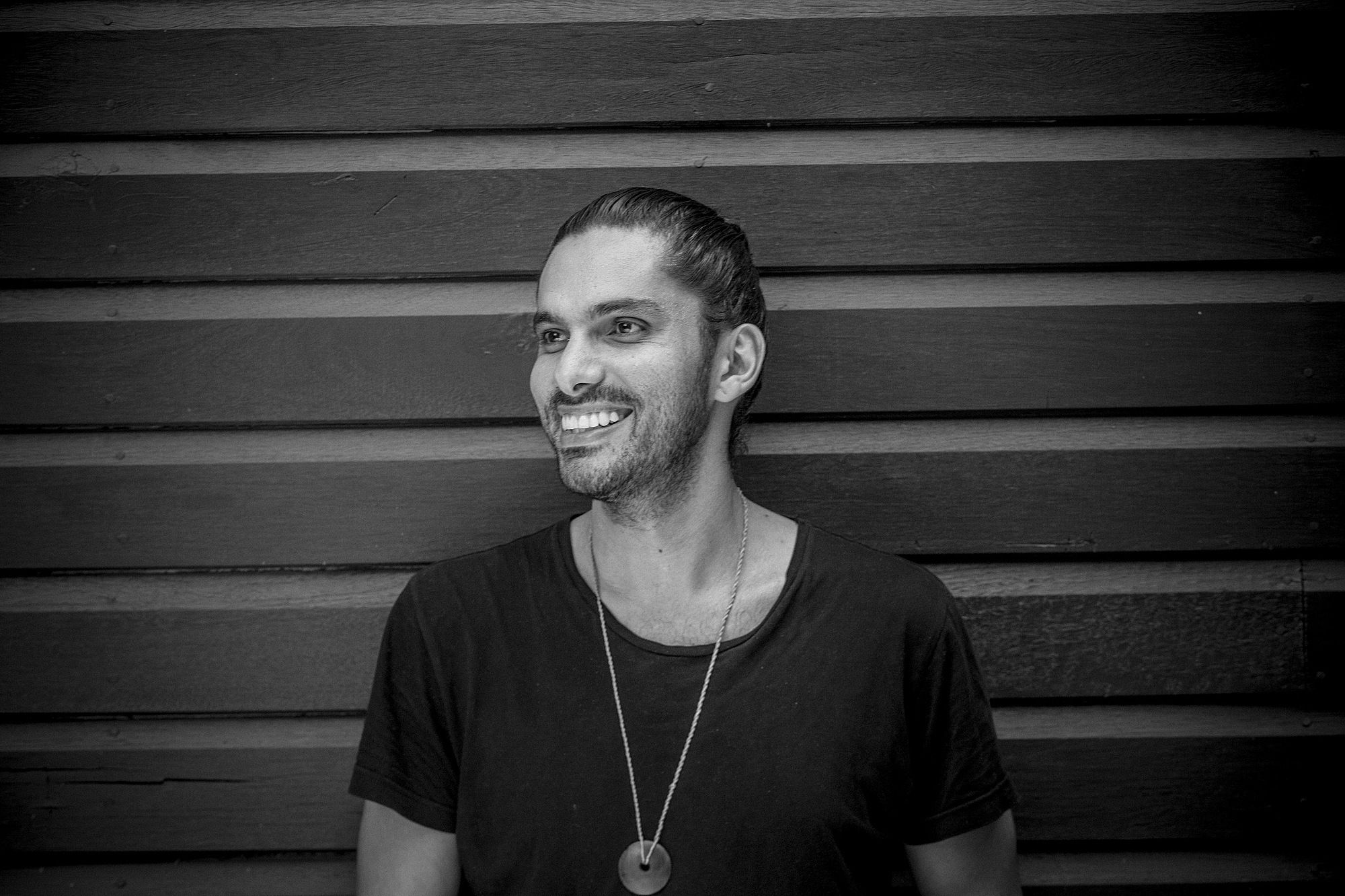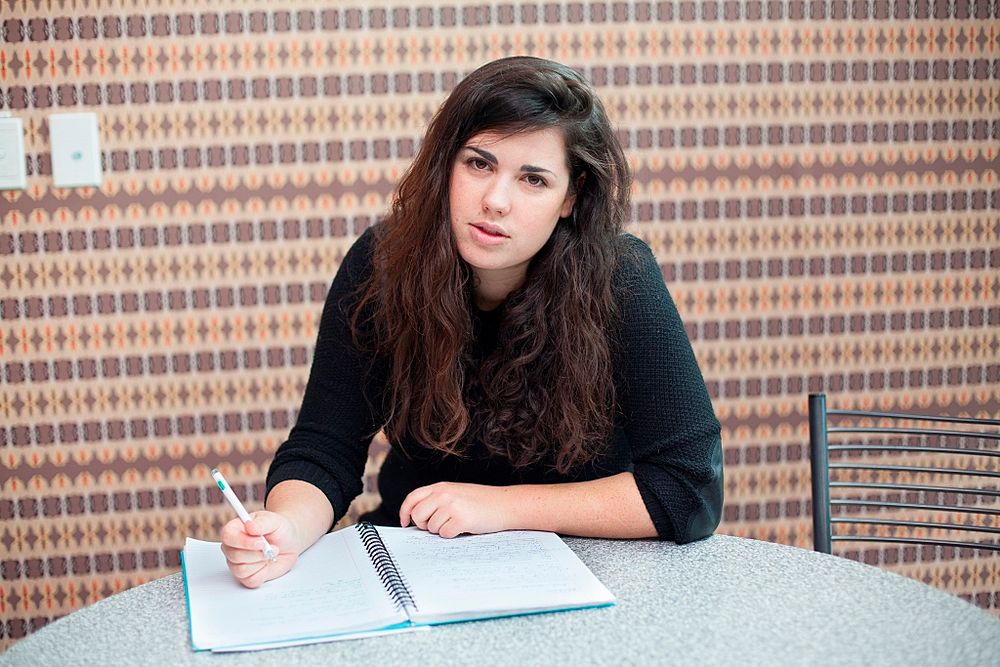On Point and Powerful: An Interview with Luka Lesson
Kirsti Whalen chats to Luka Lesson about his New Zealand spoken word tour
Being visible yet remaining vulnerable is the art of the slam poet: the almost-cry,; the almost-loss of control. A cynic would say it is a careful crafted projection of emotion, without integrity. A fan might call it raw.
I am a cynic. I was a spoken word poet for about four years. I even toured in other countries, tearing out my manufactured heart for audiences numbering from five to thousands. I won slams. I made a lot of people cry.
Last night I attended my first slam in months. It was held at the end of one of Manukau Institute of Technology’s bleak corridors, an ex-chip factory in the depths of Otara. The tropes of the night were familiar: poets shedding their shoes in self-conscious glee before taking a moment to breathe deeply; a hilarious MC building the small crowd into a mini-frenzy of applause; people wiping their eyes as a shaking poet reveals themselves in excruciating detail. And a strange, transient sense of home within that space. Oh god, I thought. I actually sort of miss this.
Perhaps the main reason I felt this sense of belonging was the ‘spotlight’ performer of the night, Luka Lesson. Lesson works exclusively as a poet, touring the world performing, teaching and selling poetry.
I first met Lesson at a poetry slam in a back room of a bar in West Melbourne – an event in support of Amnesty International. It was my first slam, and the first I ever won.
Far more exciting than the thirty dollar prize, however, was witnessing Lesson’s incredible work. It wasn’t poetry as I knew it. But he was exceptional. He had recently been crowned winner of the Australian Poetry Slam, and his dexterous grasp of language coupled with his command of the (rickety, splintered) stage convinced me that slam, had something to say. Last night I was reminded that it does.
In light of his tour touching down in New Zealand, I asked Lesson about his work, his take on slam, and what he thinks of the emerging spoken word scene in Aotearoa.
Kirsti Whalen: You're a full time working poet, which seems like a distant dream for many who write. How do you make this work? What does your work involve?
Luka Lesson: I've been doing workshops in schools since 2006, since before I was a 'poet' and I was solely into rap. So workshops have always been my bread and butter, and a great love of mine since long before I quit my day job and became a poet full-time. I am writing fairly constantly, touring intensively and managing most of my bookings myself. All of this on top of getting on stage, doing social media and sometimes making videos myself. Over the past year I’ve focused on streamlining my process, whereby when I tour I do as many shows as possible and when I'm not on tour I rest and write as much as possible. I now also have an agent who books my school and college appearances, and that’s helped me to organise other things – or just be a normal person who gets up and does nothing on weekends, which I haven't done for years. When you have a dream that is out of the ordinary you have to be extraordinary with your work-ethic and belief and love for what you do. It sounds like hard work - but I love it so much I have to force myself to have a day off.
KW: Poetry slams seem to imply value judgement — that one poem is better than another, and that one poet is best overall. People talk often about poetry being highly subjective, but it seems slam elevates poets and the medium to more mainstream (i.e. commercial) success. Is it important that we judge poetry? Are some poems far superior to others?
LL: I think slam deserves to be criticised. I definitely think poetry doesn't need to be valued in a slam for it to be good, and if you don't want to be measured you shouldn't do it, and that is totally cool. And just because a poem gets a good score in a slam, it also doesn't necessarily mean it is 'better' than the others. Having said that, I do know when I hear something sincere, vulnerable, well-sculpted, well-performed, full of heart and without apology. And I can say that it was a better package than the one before or after – and poets who enter slams would usually say "I am a much better poet than I used to be" as they grow and perform more, so there’s some kind of trajectory and skill base we’re drawing on by watching and entering. I like slam because it puts pressure on me to do better, and I owe a lot of my growth to it, but I haven't entered one for a while now because I believe I also need to learn to grow without it and in my own time.
KW: You’re both a performer and published poet. Many poets I've talked to are uncomfortable with the title 'spoken word poet' or 'slam poet.' Their work, however, is never published, and doesn't function on the page with any of the intensity or prowess found on the stage. Is spoken word poetry a genre distinct from page poetry? Should a poem work in both performance and within the pages of a book?
LL: I think that there is no 'should' in poetry. In fact I think the idea of whether something 'works' is also pretty arbitrary. Poets should do and be what they want. Santo Cazzati (a poet in Melbourne) only wants his work to be heard, not read, and actually writes his as sheet music before he performs and only ever records audio of his work. The oral tradition of it all is important to him. Others only want to be published on the page. But that doesn't mean our art is distinct from one another; we can be and do both. One poem can be published and read and be recorded and enjoyed live, but not all poems work in both arenas. I do both, but not all of my poems can do both. There are no limitations or boundaries. Only the poet themselves can tell us what they believe they've created, and we get to accept that and enjoy it.
KW: You’ve been to New Zealand and experienced at least a taste of our poetry community. How does it compare to other countries around the world, and particularly Australia? My impression is that it's still very young (as with almost everything here) and that it’s grounded in ideas of self-actualisation and youth empowerment. Do you find this to be the case? Is that a positive thing?
LL: I’ve been to so many places now but Aotearoa and South Africa have to be two of my favourites. Your poetry is totally on point and powerful. I think your poetry is a reflection of your people. The culture and struggle and joy and song is embedded in the work. Your community inspires me in many ways with the commitment to youth empowerment and to the quality of the writing and performance. I do feel that sometimes I see too many Def Jam Poetry remakes when I’m overseas in countries outside of the USA – but I realise that is part of the territory: that TV show and others like it have influenced a generation. Plus I haven't been back for a couple of years now, so I'm keen to see what's developed.
KW: How do you think the medium of spoken word — or poetry in general — can grow? Is it publishing, taking it into the theatre space, reality TV slams or something entirely different?
LL: We need to go deeper inwards, not further outwards. A slam or a poetry event is only as good as its poets. The more brave we can be, the more vulnerable, loving, powerful, connected and skilled, the better. Then, whether it’s TV or movies or theatre or YouTube, the quality of the work will make the biggest difference. It doesn't matter about hits or views or likes, what matters is impact. If twenty people see your show but leave totally changed, that is so much more important for society than a video with a million views.
KW: What do you wish spoken word poets would do differently?
LL: I wish spoken word poets would stop throwing away the last line of their poems, like mumbling them, or kind of getting off-stage before they've even said it. The last line is like the most important line of the whole damn thing. Give it the time it deserves.
KW: What are your hopes for spoken word as a medium, moving forward?
LL: I hope it remains equal in terms of men and women sharing the same time on stage, and that between cultures we remain open to hearing each others' stories no matter how angry or naive. I hope that we continue to respect each other, and learn from each other through poetry, not through the mainstream media. And if poetry one day becomes a part of the mainstream media, I hope it keeps its raw, political, passionate and vulnerable sides alive and in tact so that it influences the next generation in positive ways.
Luka Lesson will be performing this week in Auckland and Wellington. Click here for more details.

